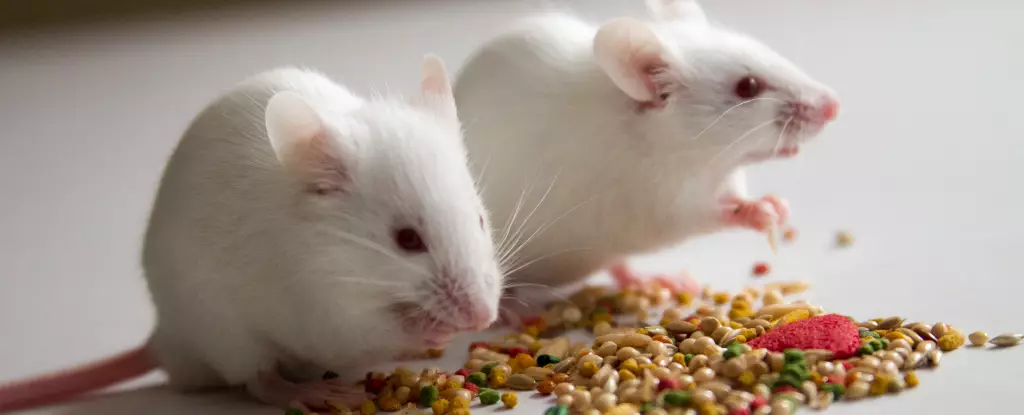The pursuit of longevity has driven scientific inquiry for decades, leading researchers to explore various dietary habits that may contribute to a longer, healthier life. Among these, caloric restriction (CR) has emerged as a focal point, highlighted by recent studies involving animal models like mice. This line of research offers fascinating insights into how reduced calorie intake could potentially extend lifespan, but it also introduces complexities that suggest a more intricate relationship than a simple cause and effect.
A groundbreaking study involving nearly 1,000 genetically varied female mice sets out to explore the impacts of caloric restriction and intermittent fasting. Researchers specifically aimed to ascertain whether modifications in metabolic processes and body composition associated with food limitation would provide benefits to health and longevity. The findings were significant: the mice subjected to the highest caloric constraints exhibited an average weight loss of approximately 25% by their 18-month mark and enjoyed an astounding increase in lifespan—about nine months longer than their counterparts on a normal diet.
What makes these findings particularly intriguing is not merely the average increase in lifespan but the variation within the groups themselves. While caloric restriction seemed to benefit some mice, not all responded positively, indicating that individual differences in genetics and physiological resilience played critical roles.
The complexities unveil when considering the genetic diversity among the mice studied. Researchers found that those mice maintaining higher body weights tended to have longer lifespans, contradicting the widely held belief that weight loss through caloric restriction is inherently beneficial. This led scientists to the conclusion that longevity is influenced far more by genetic factors than by metabolic state alone.
Key indicators included the presence of infection-fighting white blood cells and the maintenance of a consistent red blood cell size. These observations suggest that a mouse’s overall health status, rather than its caloric intake, could be a significant determinant of longevity. Such findings embody critical lessons for humans: resilience and a robust immune system might prove more vital in the pursuit of a longer life than simply adhering to strict dietary limitations.
While the mouse studies provide a diverse range of insights, translating these findings into human dietary practices remains complex. Intermittent fasting and moderate caloric restriction have gained traction in popular diet culture, with health studies hinting at corresponding benefits such as weight loss, improved metabolic markers, and a potential reduction in cardiometabolic risks. However, human studies often face limitations, including small sample sizes and short durations, making it challenging to determine if these dietary changes translate directly into extended lifespans.
Nonetheless, the notion that our dietary habits could modify our risk for chronic diseases and impact longevity is compelling. The case for intermittent fasting, in particular, has been supported by evidence suggesting benefits well above simple weight loss, perhaps hinting at metabolic, inflammatory, and hormonal adjustments that enhance overall health.
The intricate interplay between diet, genetics, and lifestyle underscores the concept that there is no universal solution for extending lifespan. While caloric restriction and fasting may offer promising avenues, they must be considered alongside factors such as individual genetics and health conditions.
Ultimately, maintaining a focus on overall health is paramount. A balanced lifestyle that incorporates good nutrition, regular physical activity, and mental well-being may prove more beneficial in the long run than solely aiming for caloric reduction. As researchers continue to unravel the mysteries of longevity, it is critical for individuals to approach their diets holistically, recognizing that health is not merely about extending years but ensuring those years are vibrant and fulfilling.



Leave a Reply